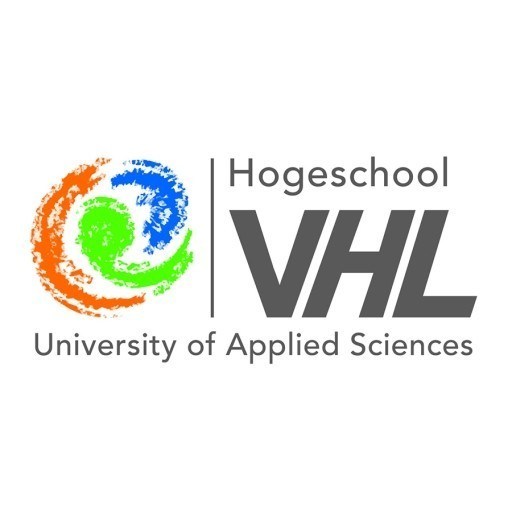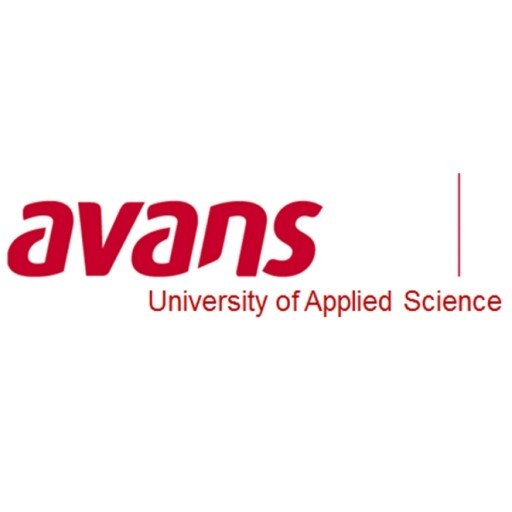Food Technology is a multidisciplinary programme offered by Wageningen University and Research that prepares students to become innovative professionals in the field of food production and processing. The curriculum combines fundamental sciences such as chemistry, microbiology, and engineering with practical skills in product development, quality assurance, and sustainable food production systems. Throughout the programme, students gain a deep understanding of the entire food chain, from raw material sourcing to consumer preferences and nutrition.
The programme emphasizes both theoretical knowledge and hands-on experience, with laboratory work, internships, and industry projects designed to simulate real-world challenges faced by the food industry. Students learn to analyze and develop food products, ensuring they meet safety standards, consumer demands, and sustainability criteria. A strong focus is placed on innovation, enabling graduates to contribute to the development of healthier, more sustainable, and affordable food options.
Additionally, the curriculum covers topics such as food design, packaging, legislation, and entrepreneurship, preparing students for diverse careers within academia, industry, or governmental organizations. The international orientation of the programme encourages students to develop a global perspective on food issues, fostering cross-cultural teamwork and understanding.
Wageningen’s state-of-the-art facilities and close collaboration with industry partners provide an excellent environment for experiential learning. Upon graduation, students are equipped to address complex food-related challenges, develop new food products, optimize production processes, and contribute to a sustainable food future. The programme prepares graduates for positions in food companies, research institutes, regulatory agencies, and consultancies, making it an ideal choice for those passionate about food innovation and sustainability.
The MSc in Food Technology at Wageningen University & Research offers a comprehensive and in-depth exploration of the science and engineering behind food production, processing, and safety. This programme is designed for students who are passionate about innovating and improving the global food supply chain through scientific research and technological advancements. Throughout the programme, students gain a solid foundation in the core principles of food chemistry, microbiology, quality management, and process engineering, allowing them to develop innovative solutions for current and future food challenges.
The curriculum combines theoretical knowledge with practical application, featuring modules such as Food Chemistry and Biochemistry, Microbial Food Safety, Food Processing Technologies, and Food Quality Management. Students also have the opportunity to engage in cutting-edge research projects, often in collaboration with industry partners and research institutes, which prepares them for a variety of careers in food development, safety assurance, and technological innovation. Emphasis is placed on sustainability, nutrition, and consumer preferences, aiming to develop technologies that contribute to healthier and more sustainable food systems.
In addition, the programme highlights the importance of entrepreneurship and innovation, encouraging students to translate scientific insights into market-ready products. They will learn to assess food safety risks, optimize processing methods, and develop new food products that meet consumer demands and comply with international regulations. The MSc programme in Food Technology at Wageningen University empowers students with the knowledge, skills, and mindset needed to lead advancements in the food industry and contribute to global food security. Graduates are well-equipped to pursue careers in food research institutes, food manufacturing companies, consultancy firms, and regulatory agencies, wherever their expertise is needed to ensure safe, nutritious, and sustainable food for the future.
Program requirements for the MSc Food Technology at Wageningen University and Research include a strong academic background in life sciences, nutrition, food science, or related fields. Applicants are expected to hold a bachelor's degree or an equivalent international qualification with a solid foundation in biology, chemistry, and physics. Demonstrable proficiency in English is mandatory, typically demonstrated through standardized tests such as IELTS (with a minimum overall score of 6.5), TOEFL iBT (minimum score of 90), or comparable certifications. Prior coursework or experience in food microbiology, process technology, food safety, or related disciplines is highly advantageous. Applicants should submit a completed application form, including official transcripts, curriculum vitae, motivation letter, and two academic references. Relevant work experience or internships in food technology or research may strengthen an application but are not compulsory. The admissions committee assesses applicants based on academic performance, relevant experience, motivation, and potential contribution to the program. Prospective students from non-EU/EEA countries may be required to demonstrate sufficient financial means and obtain a student visa. For Dutch applicants, meeting the general entry requirements for master's programs at Wageningen University suffices, provided they meet the specific prerequisites for Food Technology. The program emphasizes multidisciplinary knowledge, innovative thinking, and practical skills in food processing, safety, and sustainability, and therefore encourages applicants with a passionate interest in these areas. There are no specific prerequisite courses mandated; however, a background in chemical engineering, food chemistry, or related fields is beneficial. All applicants must apply via the university's online application system before the specified deadline, typically around 15 January for non-EU applicants and 1 May for EU applicants. Selected candidates may be invited for an interview or additional assessment, and international applicants are advised to consult the university’s international student support services for visa and relocation guidance. The program aims to prepare students for careers in the food industry, research, policy, or academia, and therefore values diverse academic and cultural backgrounds.
The financing options for the Food Technology master's programme at Wageningen University & Research are primarily based on Dutch and international student funding schemes. For Dutch students, the programme fee is determined by the government's standard tuition fee for higher education, which currently stands at approximately €2,200 per year for degree-seeking students within the European Union. International students from outside the EU are typically required to pay higher tuition fees, which can range from €18,750 to €20,250 annually, depending on the specific course load and residency status.
Students from the European Union may be eligible for government grants, student loans, and financial aid schemes provided by the Dutch government, such as the Studielink system, which facilitates application for student finance. International students from outside the EU are generally expected to finance their studies through personal savings, scholarships, or external funding sources. Wageningen University & Research offers several scholarship opportunities for talented international students, including the Holland Scholarship, which provides a one-time grant of €5,000, and various country-specific scholarships.
Additionally, students are encouraged to explore external funding options such as national and international scholarship programs, private foundations, and industry sponsorships. Some students take advantage of part-time work opportunities on or near campus to support their studies financially, with the university providing guidelines on work hours and student employment regulations.
The university's career services center also assists students in finding internships and part-time employment relevant to their field of study, which can contribute to their overall financing. For students from developing countries, Wageningen University & Research has partnerships and special scholarship schemes designed to support their participation in the programme.
Overall, financing a Food Technology master's at Wageningen involves a combination of government funding, scholarships, personal savings, and income from part-time employment, with numerous support options available to help students manage their study expenses effectively. The university actively informs prospective students about the most current financial aid opportunities during the application process, ensuring that students are aware of the full scope of available resources to fund their education in Food Technology.
The BSc Food Technology at Wageningen University & Research is a comprehensive undergraduate program designed to prepare students for a career in the food sector, focusing on the scientific and technological aspects of food production, safety, and quality. The program combines fundamental knowledge in biology, chemistry, and physics with specialized courses in food processing, preservation, and innovation. Students gain hands-on experience through laboratory work, research projects, and internships, enabling them to apply theoretical concepts to real-world challenges in food engineering and product development. The curriculum emphasizes sustainable practices, health aspects, and consumer preferences, aligning with current trends in the industry. Wageningen University is renowned for its focus on life sciences and food sciences, offering excellent facilities and close collaboration with the food sector, including industry partners and research institutes. The program prepares graduates for roles in food product design, quality assurance, research and development, and consultancy. Students also develop skills in project management, critical thinking, and teamwork. The international environment fosters cross-cultural communication and prepares students for global careers. Graduates are well-equipped to contribute to innovations in food technology, improve food safety standards, and develop sustainable food systems that meet societal needs. The program often includes elective courses allowing students to tailor their studies to specific interests within food technology, such as functional foods, new processing techniques, or packaging innovations. Wageningen's strong reputation and extensive network of alumni and industry partners provide ample opportunities for internships and employment upon graduation. The program also offers postgraduate pathways for students wishing to further specialize in areas such as food safety, quality management, or food innovation. Overall, the BSc Food Technology at Wageningen University provides a solid foundation in food science combined with practical skills, preparing students for a dynamic and impactful career in the global food industry.







